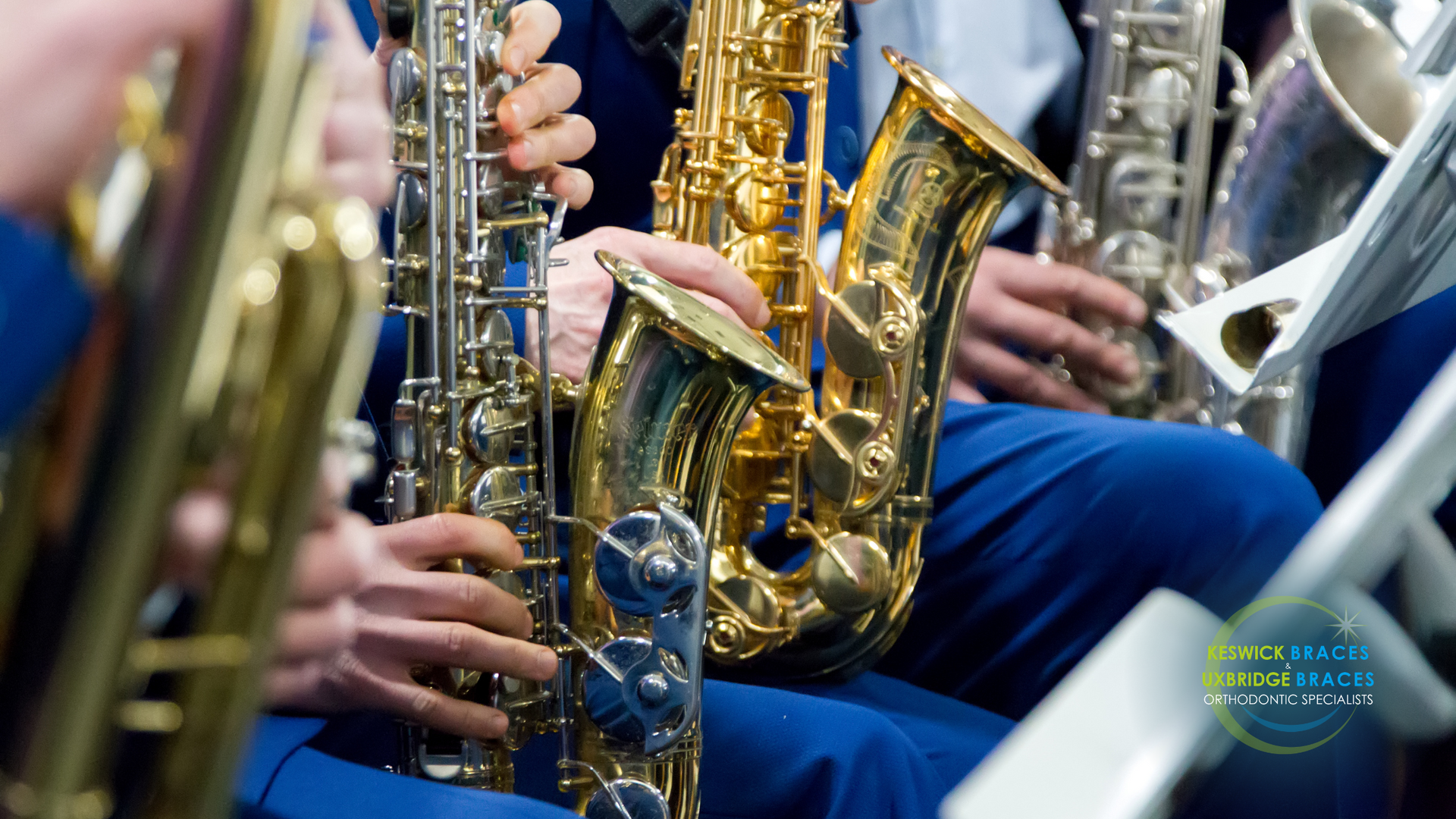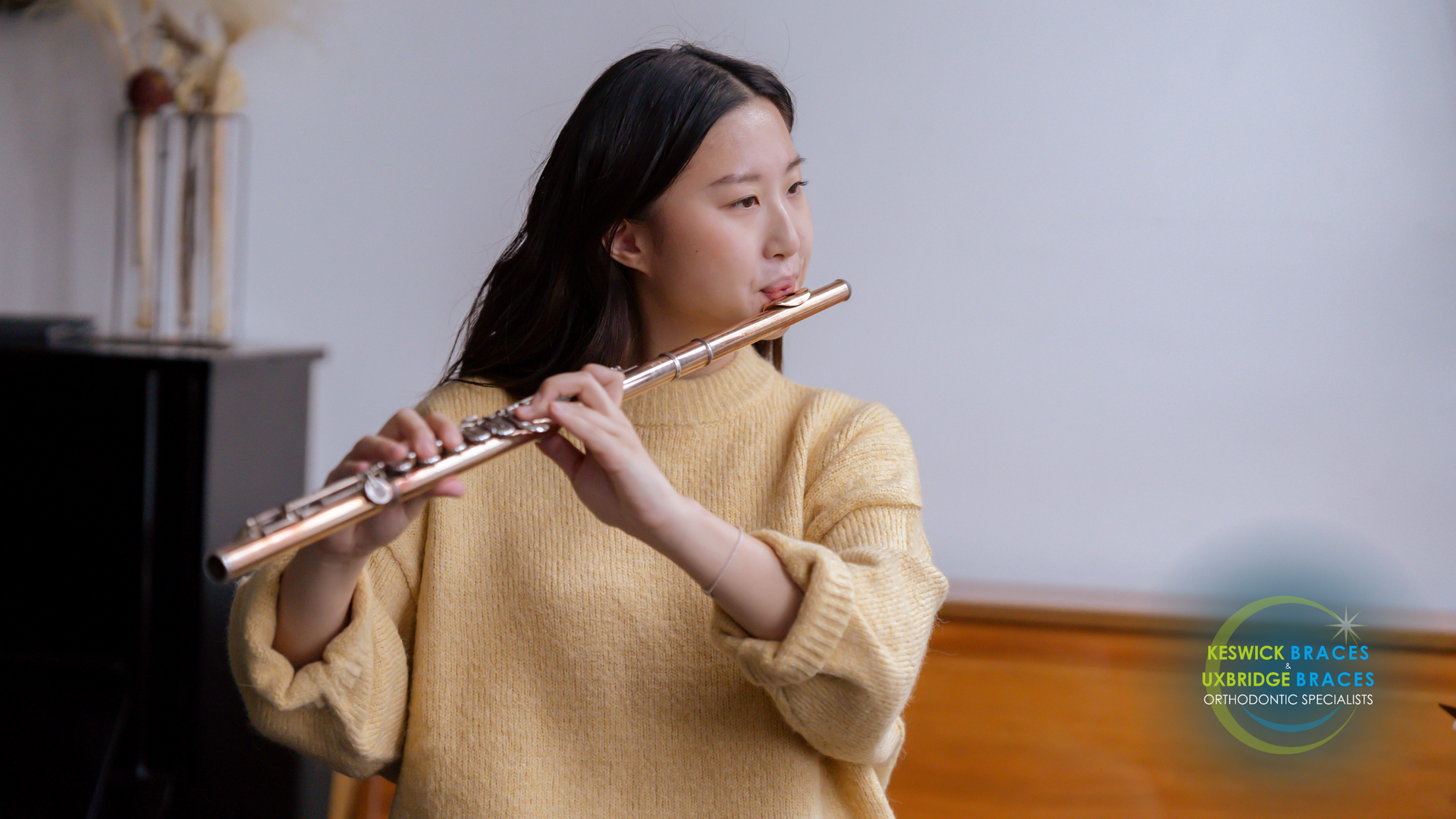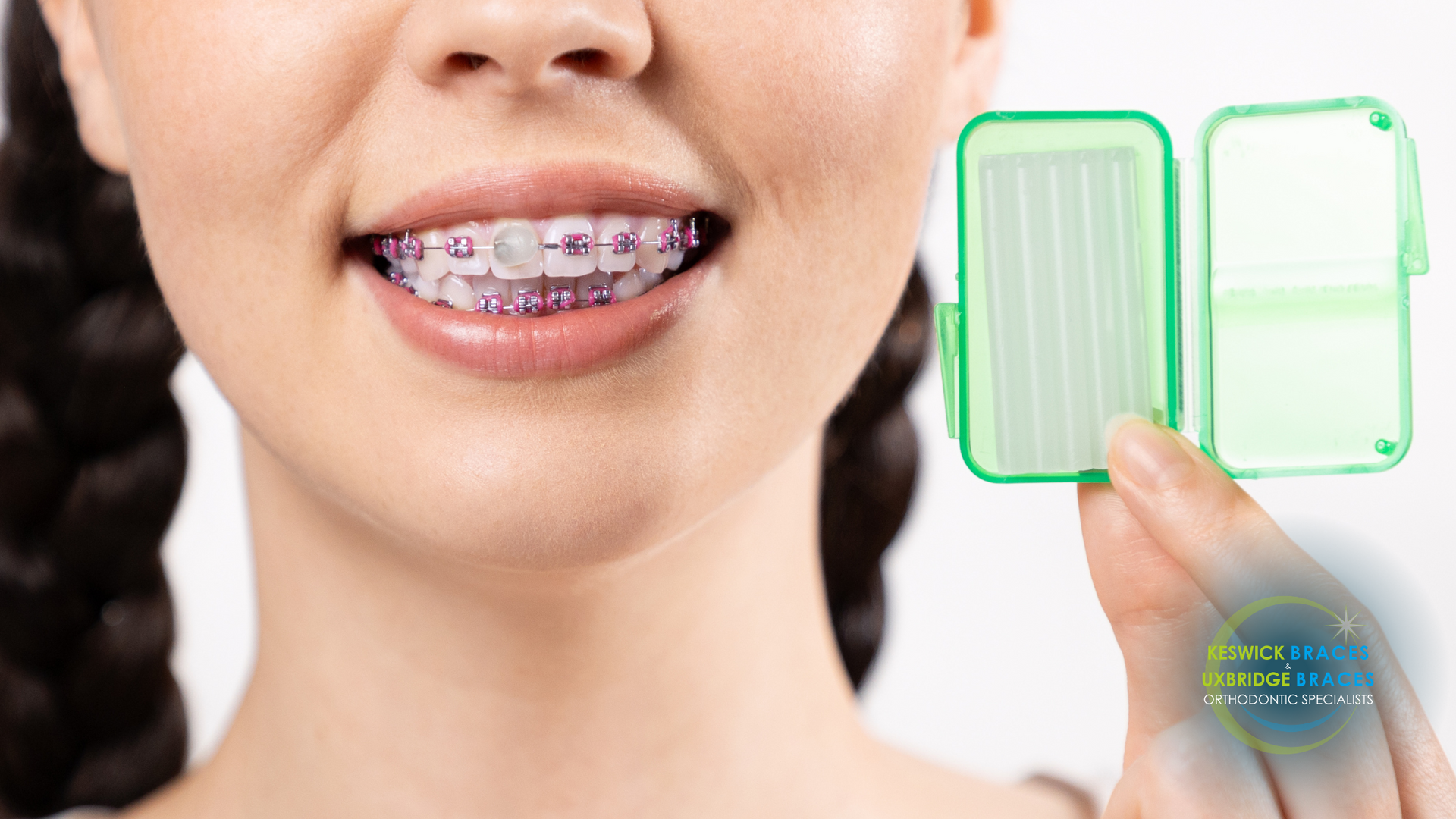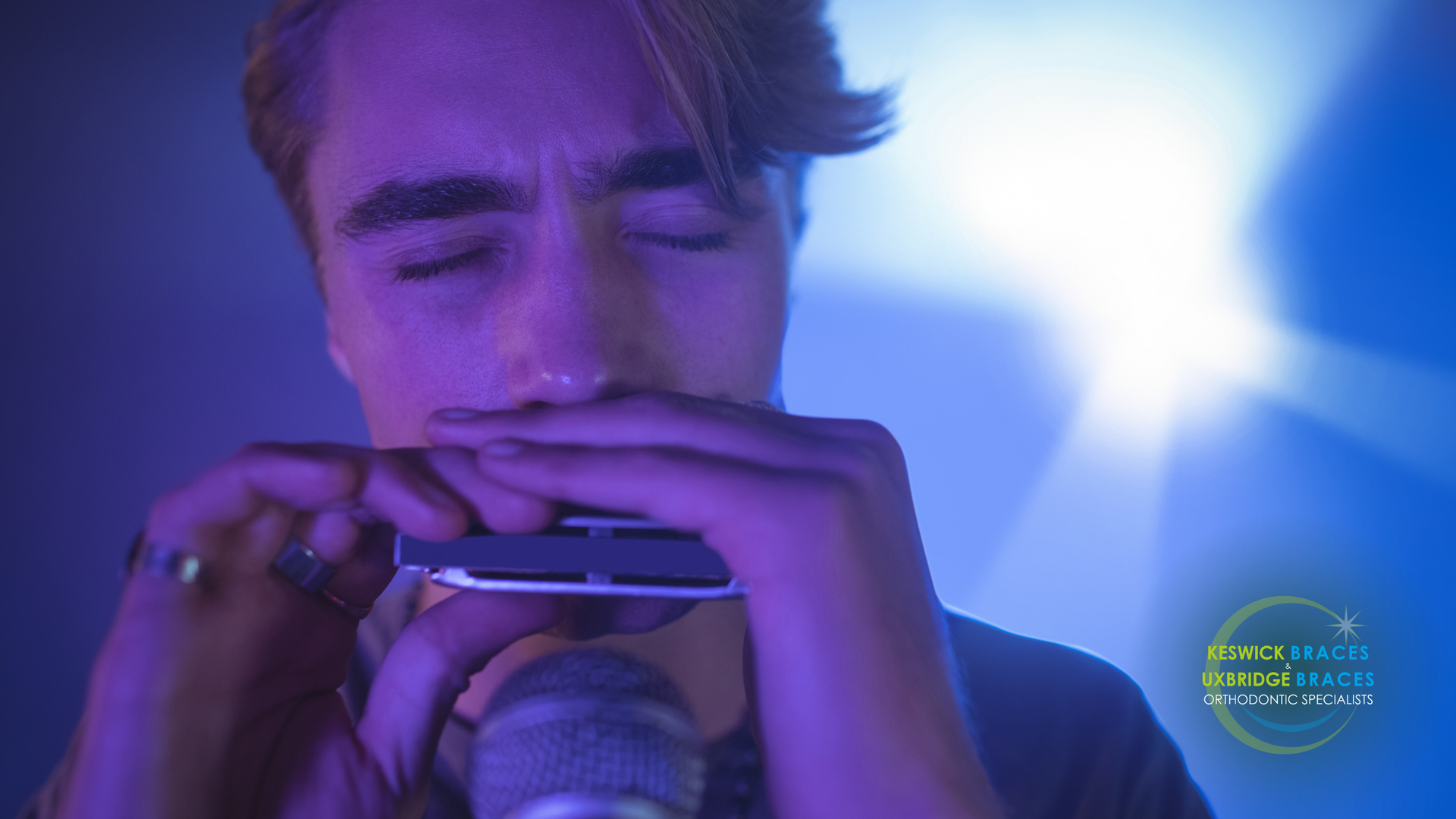Keswick
24082 Woodbine Avenue, Keswick
Ontario, L4P 3E9
Mon - 9:00AM - 5:00PM
Tues - 9:00AM - 5:00PM
Wed - 9:00AM - 4:00PM
Thur - 9:00AM - 4:00PM
Fri - Closed
Uxbridge
28 Toronto St S - Unit 3, Uxbridge
Ontario, L9P 1P3
Mon - 9:00AM - 5:00PM
Tues - 9:00AM - 5:00PM
Wed - 9:00AM - 4:00PM
Thur - 9:00AM - 4:00PM
Fri - Closed
Braces and Music: Can You Still Play or Sing?

Source: Dr. Marketing
For musicians and vocalists, the thought of getting braces can bring up concerns about how orthodontic treatment may impact their performance. Will playing the flute or trumpet be more difficult? Will singing or pronunciation change? The good news is that while braces may require an adjustment period, they do not have to interfere with musical abilities or vocal performance. With practice and a few helpful techniques, musicians and singers can continue perfecting their craft while achieving a straighter, healthier smile.
At Keswick Braces in Keswick, ON and Uxbridge Braces in Uxbridge, ON, we understand the unique concerns that musicians and vocalists have when undergoing orthodontic treatment. This blog explores how braces affect playing wind instruments and singing, what to expect during the adjustment phase, and practical strategies to help ease the transition.
Can You Play a Wind Instrument with Braces?

Wind instrument players rely on precise mouth positioning, breath control, and embouchure (lip and facial muscle placement) to produce sound. Since braces change the shape of the inside of the mouth and create extra friction against the lips, musicians may experience some initial challenges. However, with practice, most players adjust within a few weeks.
Braces and Different Types of Wind Instruments

The degree of adjustment required depends on the type of instrument played.
Brass Instruments (Trumpet, Trombone, Tuba, French Horn)
Brass musicians rely heavily on lip vibration to produce sound, meaning that braces may cause more discomfort compared to other instruments. The pressure required to buzz the lips against the mouthpiece may lead to irritation, but over time, the lips adapt to the braces, and playing becomes easier.
Woodwind Instruments (Flute, Clarinet, Saxophone, Oboe, Bassoon)
For woodwind players, braces generally have less impact compared to brass instruments. The embouchure still plays a role, but since woodwind instruments use a reed or airstream to produce sound rather than lip vibration, the adjustment period is typically shorter. Flute players may notice a greater impact, as their embouchure relies more on precise lip positioning and airflow.
How to Adjust to Playing an Instrument with Braces

- Use Orthodontic Wax: Braces can cause discomfort when pressing against the lips, especially when playing brass instruments. Orthodontic wax creates a protective barrier, reducing irritation and allowing musicians to play more comfortably.
- Experiment with Different Mouthpiece Positions: Some musicians find that adjusting their mouthpiece placement slightly helps accommodate braces. Working with a music teacher or instructor can help in finding the most comfortable and effective positioning.
- Strengthen Facial and Lip Muscles: Practicing lip and facial exercises can help improve endurance and minimize discomfort. Over time, the muscles adapt to the presence of braces, making playing easier.
- Be Patient and Practice Regularly: The first few weeks of playing with braces may be frustrating, but consistent practice is key to overcoming challenges. Gradually increasing playing time allows the lips and facial muscles to adjust naturally.
- Consider Lip Guards or Protective Covers: Some musicians benefit from using lip guards or special mouthpiece cushions that reduce pressure on the braces, making playing more comfortable.
At Keswick Braces & Uxbridge Braces, we offer personalized guidance for musicians undergoing orthodontic treatment. If needed, we can discuss alternative orthodontic options, such as Invisalign, which may be a more comfortable choice for musicians.
Will Braces Affect Singing or Speech?

Singers and vocalists often worry about how braces will impact their tone, pronunciation, and vocal resonance. While braces introduce some temporary changes, they do not permanently alter vocal ability. Most singers experience an adjustment period, but with practice, they regain full control of their voice.
How Braces Affect Singing and Pronunciation
- Tongue Placement Changes: Braces slightly change the shape of the oral cavity, meaning that singers may need to adjust their tongue placement when forming certain vowel and consonant sounds. Words that require the tongue to touch the teeth, such as "s" or "th," may feel different at first.
- Increased Saliva Production: Braces may initially cause an increase in saliva production, which can make speaking or singing feel unusual. This effect is temporary and usually diminishes within the first few weeks.
- Mild Vocal Strain or Tightness: Since braces affect how the lips and facial muscles move, some singers experience slight vocal fatigue as they adjust. Relaxing the jaw and focusing on controlled breathing can help overcome this challenge.
- Braces Do Not Affect Vocal Cord Function: The vocal cords, which are responsible for producing sound, remain unaffected by braces. Singing ability is not diminished; it simply takes time for the mouth to adapt to the new oral structure.
How to Adjust to Singing with Braces

- Focus on Enunciation and Articulation: Practicing diction exercises helps singers adapt to the minor changes in pronunciation. Reading aloud, singing scales, and exaggerating consonants during warmups can help.
- Relax the Jaw and Lips: Tension in the jaw and lips can affect vocal tone. Relaxing these areas and practicing mouth-opening exercises can help maintain vocal clarity.
- Stay Hydrated: Drinking plenty of water helps reduce excess saliva and keeps the mouth comfortable.
- Experiment with Different Vocal Techniques: Adjusting breath support and resonance can help compensate for any initial changes caused by braces. Working with a vocal coach or instructor can make this process easier.
How Long Does the Adjustment Period Last?

For most musicians and singers, the adjustment period lasts between two and six weeks. With consistent practice and minor modifications, most individuals return to their normal playing or singing abilities within this time frame. At Keswick Braces & Uxbridge Braces, we work closely with musicians and vocalists to ensure a smooth transition. If discomfort persists, adjustments to the braces or additional protective solutions can be explored.
Can Musicians and Singers Choose Invisalign Instead of Braces?

For musicians and singers, Invisalign can be a great alternative to traditional braces. Since aligners are removable, they allow greater flexibility during performances or rehearsals. Unlike braces, which have brackets and wires that can irritate the lips and affect pronunciation, Invisalign aligners offer a smooth, comfortable fit that minimizes interference with playing or singing.
However, Invisalign is not suitable for all orthodontic cases. Complex misalignment, severe bite issues, or significant tooth rotation may still require traditional braces for more precise correction. Compliance is also essential—Invisalign aligners must be worn for 20–22 hours per day to be effective. Patients who frequently remove their aligners for prolonged periods may experience slower progress or compromised results.
At Keswick Braces & Uxbridge Braces, we conduct comprehensive orthodontic evaluations to determine the best treatment for each patient. Whether Invisalign or braces is the right choice depends on the complexity of the case, lifestyle factors, and individual treatment goals. For musicians and singers, we work closely to create a personalized treatment plan that supports both their orthodontic needs and their artistic passions.
Braces Should not Stop the Music

For musicians and singers, braces require an adjustment period, but they do not have to interfere with performance. With patience, practice, and a few strategic modifications, most individuals fully adapt within a few weeks. Whether you play the trumpet, flute, clarinet, or sing in a choir, orthodontic treatment should not be a barrier to pursuing your passion.
At Keswick Braces in Keswick, ON and Uxbridge Braces in Uxbridge, ON, we understand the challenges that come with braces for musicians and vocalists. Our team provides expert guidance and personalized care to make your orthodontic journey as smooth as possible. Are you a musician or singer considering braces? Schedule a consultation with us today to explore your best orthodontic options!








Call our office today or message us to book your visit
To schedule your Invisalign Assessment, please call our office for a complementary consult. No referral is required.
Both Dr. Janice McMinn and Dr. Donald Stubbs are Board Certified Orthodontists who are Preferred Invisalign Providers.
Dr. McMinn takes special interest in this treatment and has been licensed for Invisalign since 2002.
All Rights Reserved | Keswick Braces
Orthodontic Website Designed & Powered by Dr. Marketing



